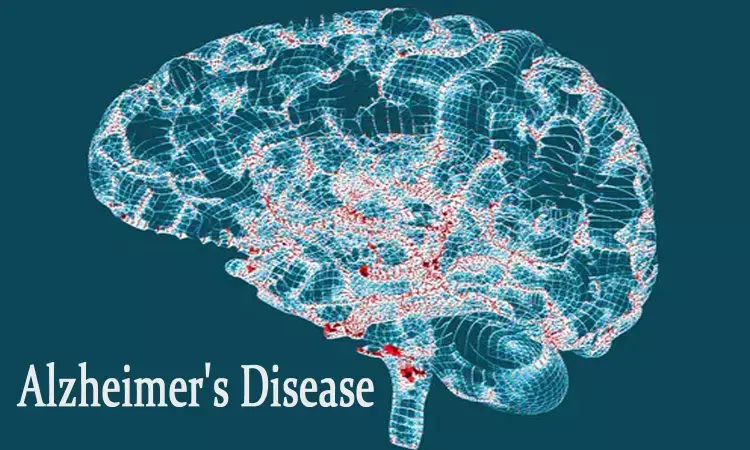- Home
- Medical news & Guidelines
- Anesthesiology
- Cardiology and CTVS
- Critical Care
- Dentistry
- Dermatology
- Diabetes and Endocrinology
- ENT
- Gastroenterology
- Medicine
- Nephrology
- Neurology
- Obstretics-Gynaecology
- Oncology
- Ophthalmology
- Orthopaedics
- Pediatrics-Neonatology
- Psychiatry
- Pulmonology
- Radiology
- Surgery
- Urology
- Laboratory Medicine
- Diet
- Nursing
- Paramedical
- Physiotherapy
- Health news
- Fact Check
- Bone Health Fact Check
- Brain Health Fact Check
- Cancer Related Fact Check
- Child Care Fact Check
- Dental and oral health fact check
- Diabetes and metabolic health fact check
- Diet and Nutrition Fact Check
- Eye and ENT Care Fact Check
- Fitness fact check
- Gut health fact check
- Heart health fact check
- Kidney health fact check
- Medical education fact check
- Men's health fact check
- Respiratory fact check
- Skin and hair care fact check
- Vaccine and Immunization fact check
- Women's health fact check
- AYUSH
- State News
- Andaman and Nicobar Islands
- Andhra Pradesh
- Arunachal Pradesh
- Assam
- Bihar
- Chandigarh
- Chattisgarh
- Dadra and Nagar Haveli
- Daman and Diu
- Delhi
- Goa
- Gujarat
- Haryana
- Himachal Pradesh
- Jammu & Kashmir
- Jharkhand
- Karnataka
- Kerala
- Ladakh
- Lakshadweep
- Madhya Pradesh
- Maharashtra
- Manipur
- Meghalaya
- Mizoram
- Nagaland
- Odisha
- Puducherry
- Punjab
- Rajasthan
- Sikkim
- Tamil Nadu
- Telangana
- Tripura
- Uttar Pradesh
- Uttrakhand
- West Bengal
- Medical Education
- Industry
New convenient way to diagnose Alzheimer's disease from nasal discharge

Researchers from Daegu Gyeongbuk Institute of Science and Technology, Korea, hint at a novel way of diagnosing AD in a much simpler way --collecting and analyzing specific proteins in nasal discharge samples. The new study has been published in the journal Scientific Reports.
The Republic of Korea, like other countries with a rapidly ageing population, is facing increasing numbers of patients with dementia, of which Alzheimer's disease (AD) is the most representative type. Unfortunately, AD has no complete cure yet; but, some treatments have been proven to delay its progression. Of course, this means that timely diagnosis while the symptoms are still mild is essential to maximize a patient's quality of life.
However, currently available technologies for diagnosing AD are limited because they involve expensive machinery and invasive or inconvenient procedures.
Professor Cheil Moon, who led the study, explains how they came up with the idea: "In 2017, we found that olfactory dysfunction occurred in the early stages of AD in mice and suggested that the cause of the symptoms was induced by soluble species of amyloid-β (Aβ) oligomer accumulations in the peripheral olfactory system. We hypothesized that soluble Aβ oligomers could be detectable in nasal discharge and that they may be a useful parameter to monitor disease progression." To test their hypothesis, they gathered and compared nasal discharge samples from 39 patients with AD and 21 people from an age-matched control group.
They found that the levels of two particular Aβ oligomers (the aggregated forms of Aβ implicated as characteristic of Alzheimer's) were consistently higher in patients from the AD group. What's more, the levels of the "soluble" form of this protein could be used to not only separate healthy subjects from patients with AD, but also predict the onset and progression of AD over a three-year period.
Although further research will be required to better understand the link between Aβ oligomers in nasal discharge and the cognitive impairments related to AD, the results are certainly promising. Prof Moon remarks, "Routine nasal discharge screenings would be a better option to screen for AD because of its various advantages, such as its relatively low cost and non-invasive nature. The results of our study introduce a novel and simple approach to assess AD progression."
This new diagnostic technique will hopefully help in simpler and faster detection of Alzheimer's and improving the disease outcome, thus bringing much needed relief to millions suffering from the Alzheimer's worldwide.
Hina Zahid Joined Medical Dialogue in 2017 with a passion to work as a Reporter. She coordinates with various national and international journals and association and covers all the stories related to Medical guidelines, Medical Journals, rare medical surgeries as well as all the updates in the medical field. Email: editorial@medicaldialogues.in. Contact no. 011-43720751
Dr Kamal Kant Kohli-MBBS, DTCD- a chest specialist with more than 30 years of practice and a flair for writing clinical articles, Dr Kamal Kant Kohli joined Medical Dialogues as a Chief Editor of Medical News. Besides writing articles, as an editor, he proofreads and verifies all the medical content published on Medical Dialogues including those coming from journals, studies,medical conferences,guidelines etc. Email: drkohli@medicaldialogues.in. Contact no. 011-43720751


